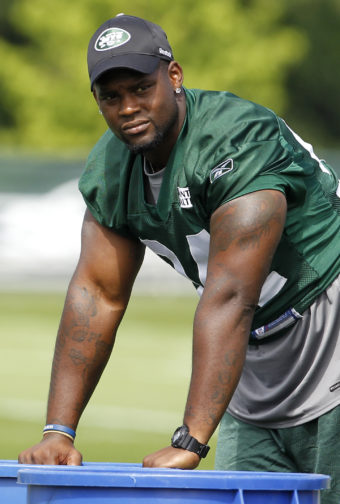
WASHINGTON (AP)—Marcus Dixon was sentenced to 10 years behind bars in Georgia for having sex with an underage white girl when he was 18. Dayonn Davis, another black youth, got a five-year prison sentence for stealing a $100 pair of shoes at gunpoint when he was 15.
It’s cases like those that minorities and others point to with frustration when they hear some of Brett Kavanaugh’s defenders say the sexual assault and underage-drinking accusations against the Supreme Court nominee fall under the category of “Boys will be boys.”
Some see a racial double standard at work, complaining that when young blacks get into trouble, their actions rarely are viewed as youthful folly in the way that the misdeeds of privileged whites are.
“I think there is a very distinct difference between the benefit of the doubt that is extended to black males and to white males,” said Jarvis DeBerry, columnist and deputy opinion editor of NOLA.com/Times Picayune.
Studies show young blacks are often perceived as older and less innocent than whites their age, a phenomenon some say translates all too often into African-American youths being demonized as “thugs,” arrested, incarcerated, and sometimes killed.
Kavanaugh’s accuser, Christine Blasey Ford, says a drunken Kavanaugh held her down, tried to take off her clothes and covered her mouth to muffle her screams when they were high school students in the 1980s. Kavanaugh has forcefully denied doing any such thing to anyone, and many supporters say they believe him.
Others have suggested that if it did happen, he might deserve a pass.
“Let’s say he did this exactly as she said. Should the fact that a 17-year-old, presumably very drunk kid did this, should this be disqualifying? That’s the question at the end of the day, isn’t it?” Bari Weiss, a New York Times opinion editor, said on MSNBC.
Minnesota state Sen. Scott Newman tweeted: “Even if true, teenagers!”
Some black commentators and others have recoiled at that line of argument, pointing to the killings of 12-year-old Tamir Rice, who was shot by a white Cleveland police officer in 2014 while carrying what turned out to be a pellet gun; Michael Brown, the unarmed 18-year-old whose shooting by police that same year touched off violence in Ferguson, Missouri; and 17-year-old Trayvon Martin, who was gunned down in 2012 by a neighborhood watch volunteer while carrying iced tea and a bag of Skittles.

“The right wants Brett Kavanaugh to get another chance because, hey, he was just a teenager, but they also believe teenagers like Trayvon Martin and Michael Brown got what they deserved,” author and critic Toure tweeted.
Opel Jones, a black Democrat running for the Howard County Council in Maryland, said that in the case of Martin, “you have the issue of the perception that this young man, he’s an adult, he’s bigger, he’s stronger, he’s such a savage, a beast, all the things that young black men especially get.”
“Wherein the public, some are excusing Brett Kavanaugh as ‘Oh, he’s young, he’s white, he was just having fun,’” Jones said. “I don’t want to use the term racist, but they kind of are.”
Dixon was accused by a 15-year-old classmate of raping her in 2003. Dixon’s attorneys argued that the sex was consensual and that the underage girl fabricated the rape story to avoid getting in trouble with her father. A jury acquitted him of rape but found him guilty of statutory rape and aggravated child molestation.
Dixon spent 15 months behind bars in Georgia before his 10-year sentence was thrown out.
As for Davis, the teenager sentenced in June for stealing a pair of Nikes in Georgia while an accomplice pulled a gun, he was prosecuted as an adult, even though his lawyer said he had no prior record.
Black boys as young as 10 are more likely to be mistaken as older, be perceived as guilty, and face police violence if accused of a crime, according to an American Psychological Association report in 2014.
Adults likewise think that black girls are less innocent, are less in need of protection and nurturing, and seem older than white girls, according to a 2017 report from the Center on Poverty and Inequality at the Georgetown University Law Center.
Eileen M. Ahlen, assistant professor of criminal justice at Penn State University at Harrisburg, said it is not just young people who are treated differently.
Ahlen said research shows that there is disparate treatment at all stages of the justice system—who’s stopped, who’s arrested, who gets bail, who gets prosecuted, severity of sentence, who gets parole—with whites able to exit the criminal justice system earlier and with less impact than minorities.
Even when accounting for similar crimes, “generally, all else being equal, a person of color is going to receive a harsher sentence,” she said.
Associated Press reporter Deepti Hajela in New York contributed to this report.










